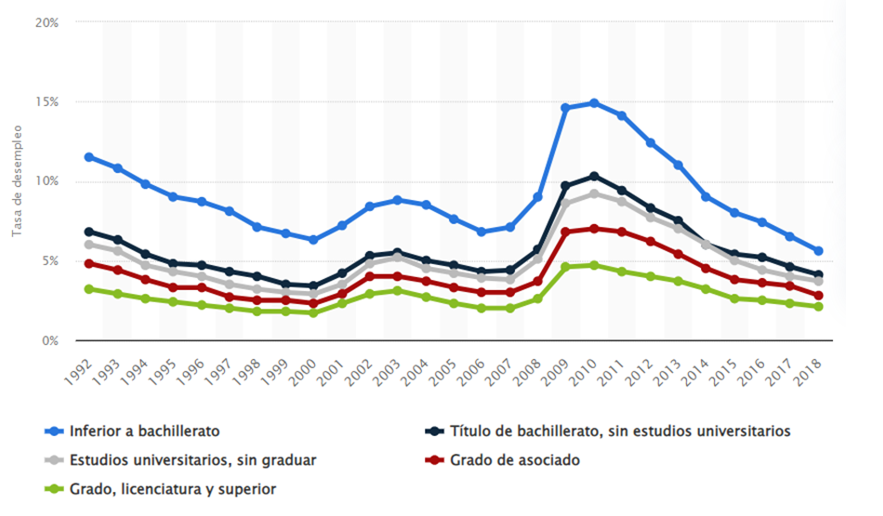Main fears of doctoral students and how to overcome them
Choosing to pursue a doctorate is a major life decision that only a few people make. Statistics show that less than 1% of the world's population holds a Ph.D.
A Ph.D. student's profile is unusual and demanding. They are professionals who are eager to satisfy their intellectual curiosity. With a strong desire to understand why things happen, as well as a strong capacity for analysis and vocation.
But, without a doubt, another of its characteristics is living under a lot of stress and pressure. We understand that beginning doctoral studies is a significant intellectual challenge that requires a significant amount of time and dedication.
Academic stress can be defined as the degree of imbalance perceived by students between the demands placed on them and their ability to meet these demands.
According to https://www.sciencedirect.com/, one in every two doctoral students experiences psychological distress, and one in every three is at risk for a common psychiatric disorder.
Stress is frequently the most difficult obstacle to overcome in order to be successful during doctoral studies.
In general, we could say that the following are among the main concerns of doctoral students:
Not having funds for your research.
Many Ph.D. students quit their jobs in order to devote their full attention to their studies. Furthermore, they rely on funds, either public or private, to conduct their investigations. Because these funds are limited, the stress of managing the budget, both academic and personal, takes its toll on the majority of students.
Failure to meet delivery times.
Research and the submission of essays and manuscripts are the foundations of doctoral studies. All of these deliveries are frequently sabotaged by perfectionism, doubts, and, why not, the impostor syndrome, which leads you to believe that your publication lacks sufficient foundation. As a result, students spend a lot of time writing (over and over), with the due dates at the top.
Not graduating.
The strict program, as well as economic pressures and tuition during the years of study, contribute to the fear of not graduating.
Being unprepared for the job market.
After spending so many years researching, the outside world, or postdoc life, becomes an unknown and dangerous place, causing great uncertainty.
What to do if academic stress is suspected?
1. Recognize and identify these mental health risks.
2. Stress, anxiety, and depression can all have a negative impact on your performance.
3. Take charge of your mental health. Don't let stress, anxiety, or depression control you.
4. Accept your situation and seek professional help if you are in it.
How to manage the stress that all this entails?
Many students drop out of doctoral programs due to pressure, so it is critical that:
• Choose your research topic and methodology carefully. This will allow you to be confident in your decision at all times.
• When selecting a thesis tutor, look for someone you trust and who you know will be there for you every step of the way, because doctoral research is often a lonely adventure, and having a mentor who supports you is essential.
It is natural for students to wonder if what they are doing is worthwhile or valuable, so having a strong foundation that reminds you why you started is essential.
Always keep the following in mind:
• Why are you pursuing a doctorate? Make a list of three reasons why you're there and post it somewhere visible.
• Don't be too harsh on yourself. We understand that demand is a part of you, but remember that a good job delivered is better than an excellent job not delivered.
• Make time to concentrate on your doctoral objectives. These blocks of time will allow you to concentrate without distractions.
• Start looking for work one year before graduation. Consider carefully what you want to do, whether you want to enter the academic or corporate worlds, and begin networking.
On this last point, it is important that you have the confidence that your doctoral studies will lead to a plethora of job opportunities.
Did you know that in the United States, 98 percent of people with a master's or doctorate degree have a stable job?
If you have any doubts about whether this time of sacrifice is worthwhile, we can prove it with numbers. Only two out of every hundred people in the United States with master's and/or doctorate degrees are unemployed.
Unemployment rate in the U from 1992 to 2018, by educational level

Source: https://es.statista.com